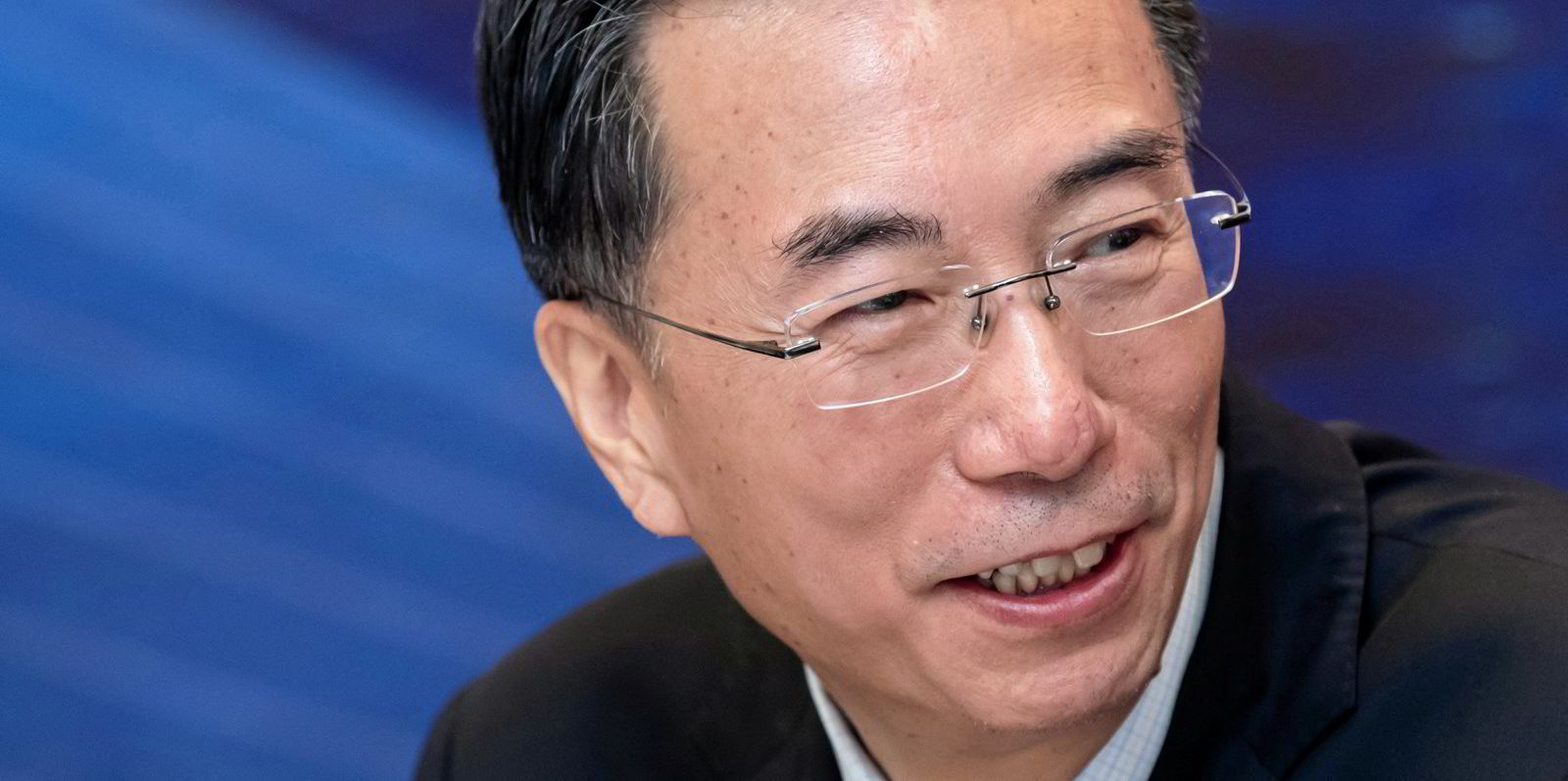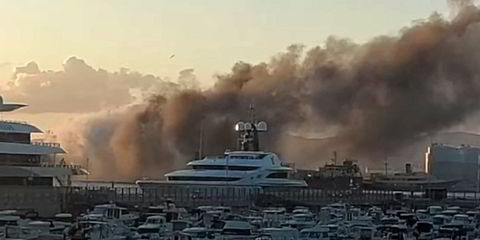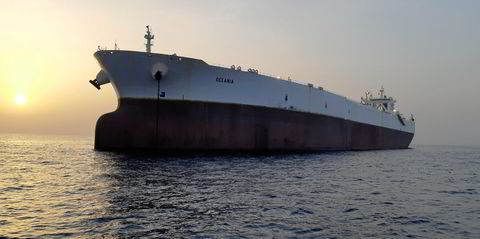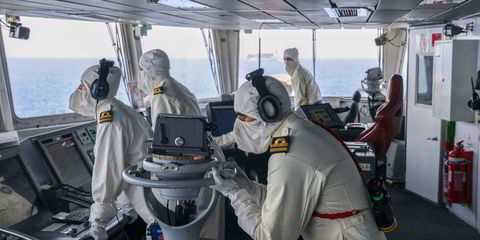Sanctioned Turkish operator Beks Ship Management has continued hauling Russian oil with two-thirds of its tanker fleet under a new flag after the UK targeted the company with sanctions, shipping and registration data shows.
Seventeen former Beks-operated tankers have shifted from the Marshall Islands to the Guinea-Bissau, Panama and Barbados registries since Britain targeted one of the company’s units on 22 February, marking the second anniversary of the invasion of Ukraine.
The change of registries is just one part of a corporate overhaul since it was hit by UK sanctions for allegedly “obtaining a benefit from or supporting the Government of Russia” through its activities.
The sanctions notice named bulker arm, Beks Ship Management & Trading (Beks Gemi Isletmeciligi ve Ticaret), which only had four tankers among the 20 ships under management at the time, according to ownership database Equasis.
Former principal Ali Bekmezci sold his stake in January to managers unconnected to the business, officials said. He retains ownership interests in the vessels.
The tanker arm, Beks Tanker Management, with more than 20 vessels on its books, was not specifically identified by the UK.
But the 44-strong managed fleet of tankers and bulkers have now all shifted to two new management companies.
The majority of its ships have also been renamed to remove the overt association with Beks.
They include the 50,548-dwt product tanker Beks T Rex (built 2006), which has been renamed Jazz and is under the commercial management of new operating company Modern Ship Management, according to Equasis.
Sales being considered
An email seen by TradeWinds also suggests that buyers are being sought for some managed vessels, including two product tankers, the 46,211-dwt Beks Fire (built 2003) and 72,664-dwt Beks Ocean (built 2004).
The owners of the two tankers terminated their management agreements with Beks as a result of the UK sanctions, according to a Beks spokesman.
“Despite this, the market perception and the negativities experienced due to this connection [have] forced the shipowners to downsize their fleet,” he said.
“Unfortunately, the shipowners and vessels have, through no fault of their own, been unfairly caught up in the UK sanctions on Beks Gemi.”
The blacklisting and management changes has not stopped the vessels from continuing to lift oil predominantly from Russian ports since 22 February, according to Kpler ship and cargo tracking data.
The ships have delivered Russian cargoes to ports in China, India and Turkey — the biggest customers for Moscow’s oil since European countries banned imports after December 2022.
The case of Beks Ship Management and other companies sanctioned by the UK highlighted differences in sanctions enforcement with the US — and an apparent flaw in the British regime.
The UK has targeted management companies, including Sovcomflot Dubai-based subsidiary Oil Tankers (SCF) Management, Radiating World Shipping Services and Fractal Marine DMCC.
Some of the companies have responded by ending links to the ships under management. Radiating World, which at one point in 2023 had 17 ships, now has only one under management, while Fractal has none, according to Equasis.
But ships formerly linked to the companies continued to haul Russian oil under new management.
Beks cites compliance
The Istanbul-based company said it was appealing to the British Foreign Office to revoke the listing, saying it had always complied with UK sanctions rules.
It said it had gathered attestation forms showing it was hauling Russian oil below the price caps.
“Only the company named Beks Gemi has been sanctioned,” said the company official. “These [management, naming and flagging] changes have been necessary given that the vessels were unfairly caught up in the designation causing significant harm, including in relation to other investments containing the name Beks.
“The ships owned by European and other country companies load on the same day and from the same ports.
“We, like them, conduct these voyages after the checks of our dedicated English sanctions lawyers (as has been the case for some years now) before fixing all these voyages.
“We do not do any business that is absolutely not in accordance with the law and that Europeans do not do.”

The US changed its tactics in October to go after individual vessels rather than the operators and has since blacklisted 41 tankers that it claims have been linked to price cap evasion.
The scheme started in December 2022 and is designed to cut oil revenues to Russia while keeping its exports flowing.
Western involvement
Western shipping, insurance and financial interests can only be involved in Russian oil cargoes if they are sold below the price of $60 a barrel for crude and $100 and $45 for oil products.
Urals, the main export grade, is currently trading around $84 per barrel, according to New York-based Trading Economics.
US sanctions enforcers said they would continue to sanction individual tankers over alleged price cap breaches.
“You should expect the continued steady drumbeat of US and coalition enforcement actions,” Geoffrey Pyatt, assistant secretary of state for energy, was quoted as saying last week by S&P Global.
“Our objective in that second market is to raise the costs to the Kremlin as high as possible in order to drive down the revenues that Russia enjoys.”
The squeeze put on Russia means that the shadow fleet hauling Russian oil remains well below what is needed, said Craig Kennedy, a Russia energy and finance expert and associate at Harvard University’s Davis Center.
Further sanctions against individual tankers could “significantly reduce fleet size with little risk to shipping and energy markets”, he said in a new paper.
“Significantly downsizing the shadow fleet would shift more export barrels back to the price-cap constrained mainstream fleet,” he added.
This story has been updated to reflect new ownership information from the company
Read more
- Tanker newcomer Fractal challenges UK blacklisting over Russia role
- Swathe of US and EU sanctions targets include shipyards, owners and vessels
- Beks Ship Management vows to fight UK blacklisting over Russia links
- UK sanctions tanker newcomer Fractal and Turkey’s Beks over Russia trades
- Ali Umur’s Active Denizcilik follows up string of tanker buys with lucrative sale







